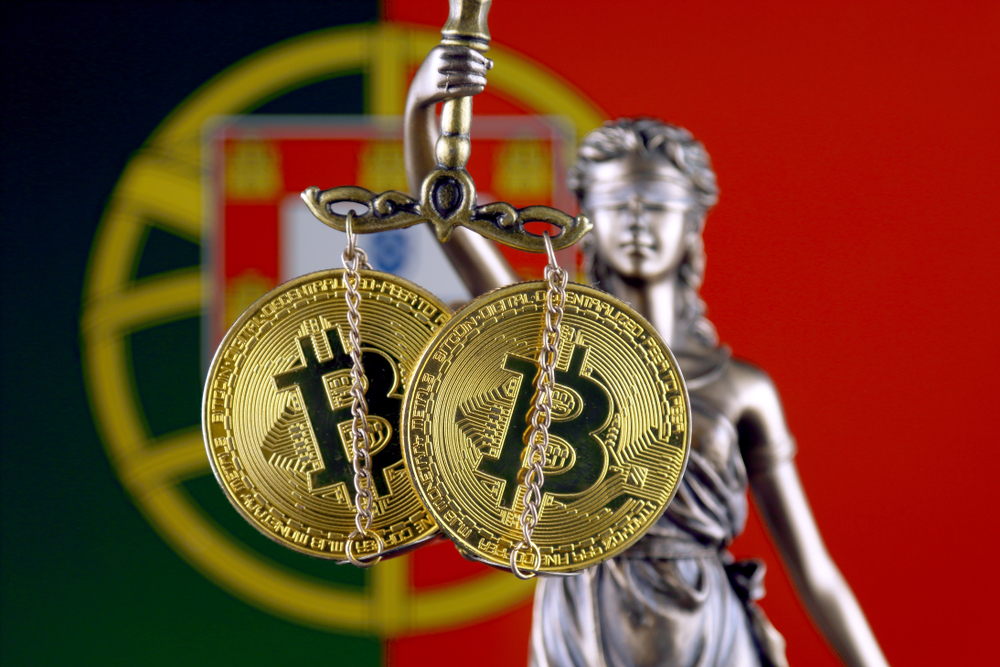Portugal will use blockchain technology to vote on three winning projects that develop prototypes that benefit the United Nations Sustainable Development program.
For the first time in its history the Portuguese government will use blockchain technology to pick the winners of its GovTech iniative, which serves the UN goal of solving humanity’s problems by 2030.
Anyone who registers will be able to participate in the contest as if it were a crowdfunding platform with a blockchain twist.
Each user, when registering, will earn “GovTechs,” which are virtual voting units that they can use to “invest” in the projects they like best.
The GovTechs virtual voting units act like tokens or cryptocurrencies, but do not have monetary value.
Assistant Secretary of State and Administrative Modernization Graça Fonseca, told Portuguese news outlet Observador that blockchain technology “allows us to monitor how the community supports projects in a transparent way. One of the objectives is to test the blockchain technology in certain type of initiatives and to see the obtained results.”
Read More: Trust no one: the story of Blockchain and Bitcoin
The GovTech competition begins in May and will award €30,000 to three startups or teams that create a prototype that will help solve the problems of humanity.
Apart from the €30,000 prizes, the three winners will also take home a protocol of collaboration with the government of Portugal to develop the product, a working space in an incubator, internationalization support with the sponsorship of the Camões Institute, and three Alpha tickets for the Web Summit, with exhibitor rights, reported Diário de Notícias.
Registration closes on June 8. The contest will run until October and the platform was created by Bright Pixel which, together with the government, will help manage the site.
The GovTech initiative is aimed at solving the UN’s 2030 Agenda for Sustainable Development, which outlines 17 goals.
“GovTech wants to respond to the 17 sustainable development goals defined by the UN, with which the Portuguese State has committed itself. We are looking for products or services that present solutions to the problems,” said Fonseca.
Those 17 goals include:
- No poverty
- Zero hunger
- Good health and well-being
- Quality education
- Gender equality
- Clean water and sanitation
- Affordable and clean energy
- Decent work and economic growth
- Industry, innovation, and infrastructure
- Reduced inequalities
- Sustainable cities and communities
- Responsible consumption and production
- Climate action
- Life below water
- Life on land
- Peace, justice, and strong institutions
- Partnerships for the goals
The winners of Portugal’s GovTech initiative “will be chosen by a jury and by the general public, who will be able to register on the platform and vote for their preferred candidates. it is a virtual investment, in a scheme of exchange and reward, but it is also a way to mobilize the people,” said Fonseca.
Read More: Portugal has a StartUp Visa and is now accepting applications
Although many assimilate blockchain with the likes Bitcoin, the technology is actually being used in many innovative ways that do not include cryptocurrencies.
For example, blockchain startup, Devery, is working with the UN World Food Program, along with the Tunisian Ministry of Education to implement a blockchain-based tracking system for its school meals program.
Read More: UN World Food Program taps blockchain startup for school lunch tracking in Tunisia
Through this three-way partnership, the initial roll out will feed 1,500 primary school kids, with the goal of ultimately rolling out to the scheme to all 400,000 Tunisian school children currently receiving food assistance.
The attention surrounding blockchain has erupted in the past year. Governments and companies across the world have seen great potential in this new technology to improve their offering.
Read More: Blockchain and the future of affiliate marketing: Interview
Most recently blockchain technology has attracted the attention of investors thanks to its transparency, tamper-proof record and decentralized nature, with many other industries poised to adopt this new technology in one form or another.












